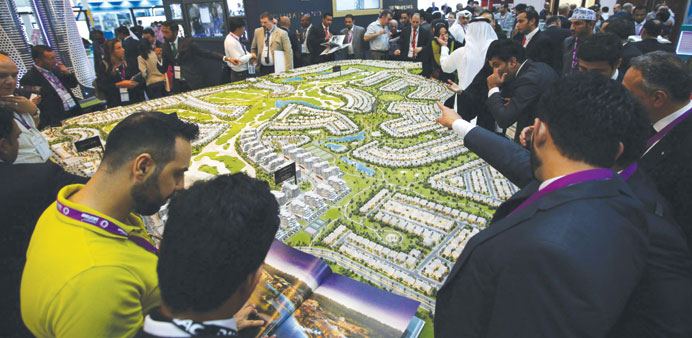Damac’s $650mn of bonds maturing April 2019 were the best-performing sukuk in Dubai during July, returning almost 70% more than their nearest rivals
Bloomberg/Dubai
For debt that’s off limits to many banks in the Gulf region, junk-rated Damac Properties Dubai Co’s securities aren’t doing badly at all.
The company’s $650mn of bonds maturing April 2019 were the best-performing sukuk in Dubai during July, returning almost 70% more than their nearest rivals, according to data compiled by Bloomberg. Even after the gains, the yield at 6.45% remained the highest for any non-perpetual Islamic bonds in the emirate as of July 31.
While most regional banks don’t hold junk-rated bonds in their books due to capital adequacy requirements, estimates that sales may quadruple this year are boosting the allure of the Dubai developer’s debt to investors seeking higher yields in anticipation of the first US interest-rate increase since 2006. T Rowe Price Group Inc, the Baltimore-based mutual fund manager, boosted its purchases of the securities last quarter by a third, according to a June 30 filing.
“Given the company’s profile and position, grabbing a bond that’s yielding between 6% and 6.5% for a short- dated paper is a beefy return for the risk on the table,” Ahmed Shehada, the head of advisory and institutions at NBAD Securities, the brokerage of the UAE’s biggest lender, said by e-mail from Dubai.
US Federal Reserve chair Janet Yellen said last month she expects the central bank to raise its benchmark rate this year. Traders are pricing in a 36% probability of an increase at or before the Fed’s September meeting.
In a rising rate environment, “investors prefer bonds that have a little bit of credit spread in it because it provides a little bit of cushion,” said Anita Yadav, head of fixed income research at Emirates NBD, Dubai’s largest bank.
Damac is rated BB by Standard & Poor’s, the second-highest non-investment grade, citing the company’s “strong focus on Dubai and its volatile property market” among its business risks. Total sales of land, units and buildings in Dubai fell 37% in July compared with the same period last year, according to Dubai Land Department data.
“It’s always tempting to look at the yield, but then there is a good chance that once we see a bit of volatility in the property market again, the price” may drop, Robert Hahm, investment manager at Mashreq Capital DIFC Ltd in Dubai, said by phone on Thursday. “My concern is that they’ll follow an aggressive dividend policy, and if we see further downturn in the property market, the company won’t have enough liquidity.”
Damac said in April it would pay holders at least 25% for this year, or 25 fils per share. That compares with 15% for Emaar Properties for 2014, Dubai’s biggest developer, data compiled by Bloomberg show. The company’s board planned to meet on Tuesday.
Damac’s sukuk returned 2.43% last month. T Rowe Price Group didn’t respond to an e-mail and calls requesting comment on Monday. Damac’s spokesman declined to comment by e- mail.
“Only recently has Damac’s sukuk started to pick up,” Shehada said. “This may be in reaction ahead of reportings. I believe the results are going to be positive.”
The company’s sales may soar to 7.94bn dirhams ($2.16bn) this year from 2bn dirhams in 2014, according to the mean estimate of three analysts compiled by Bloomberg.
“The investors are comfortable with the credit, it has very good financial ratios,” said Mashreq’s Hahm.

